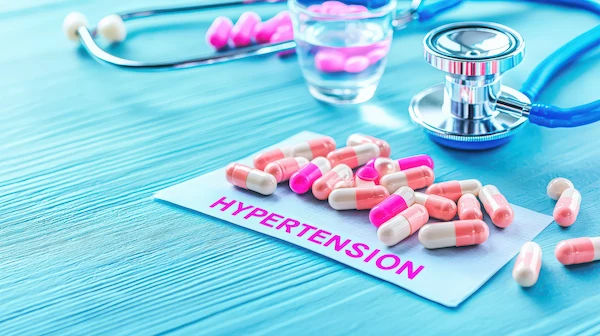- male
- 45 Years
- 23/01/2025
I'm having some concerns and would love your advice. My blood pressure is at 160100 and I'm also experiencing a fever. I used to have anxiety and was on etizolam beta .25, but I stopped taking it about a year ago. A year ago, all my tests like ECG, echo, TMT, and blood work were normal. Should I consider getting these tests done again, or do you think I should go back on the meds?
Answered by 1 Apollo Doctors
Given your high blood pressure (160100) and fever, along with a history of anxiety and discontinued medication (etizolam beta 0.25), it's essential to consult your doctor immediately; they may recommend repeating some tests, such as ECG, blood work, and possibly adding new ones like a chest X-ray or inflammatory marker tests to rule out underlying conditions;
Dr. Anshul Suggests...
Consult a Cardiologist
Answered 04/07/2025
0
0

More Cardiology Health Queries
View allWhat is Torsades de Pointes?
Rare type of ventricular tachycardia , characterized by a gradual change in amplitude and twisting of the QRS complexes around an isoelectric line on the electrocardiogram, which can be life threatening .
Answered by 1 Apollo Doctors
I'm a 19-year-old guy dealing with high blood pressure issues. My doctor suggested I take Bengreat 4 tablets, and I'm honestly a bit worried about my health. I'm also obese, weighing 105 kg, and I'm unsure if I should start taking these tablets. Could you give me some advice on whether it's safe or if there's anything else I should consider?
Bengreat 4 is a commonly prescribed medication for high blood pressure. It contains a combination of Amlodipine 5mg and Telmisartan 40mg. It is important to follow your doctor's advice and take the medication as prescribed. The usual dosage for Bengreat 4 is 1 tablet once daily. It is important to monitor your blood pressure regularly while taking this medication. Additionally, since you mentioned being obese, it is also important to work on lifestyle modifications such as a healthy diet and regular exercise to help manage your blood pressure.
Answered by 1 Apollo Doctors
I've been using meth for 18 years and I'm about to get a pacemaker. I'm really worried about whether I can continue using meth after I have the pacemaker implanted. What are my chances of living a normal life, and what are the worst complications I could face?
Continuing meth use after getting a pacemaker is dangerous and can increase the risk of severe heart complications, including heart failure, cardiac arrest, and stroke. The best course of action is to quit using meth, work with your healthcare provider, and focus on rehabilitation and healthy lifestyle changes to support your heart health.
Answered by 1 Apollo Doctors
Disclaimer: Answers on Apollo 247 are not intended to replace your doctor advice. Always seek help of a professional doctor in case of an medical emergency or ailment.



